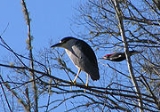
Serendipity
WordNet
noun
(1) Good luck in making unexpected and fortunate discoveries
WiktionaryText
Etymology
. Coined by Horace Walpole, 1754. is an old name for Sri Lanka.
- 1754 Horace Walpole, The Letters of Horace Walpole, vol. 2, Letter 90, To Sir Horace Mann, Arlington Street, Jan. 28, 1754.
- This discovery, indeed, is almost of that kind which I call Serendipity, a very expressive word, which, as I have nothing better to tell you, I shall endeavour to explain to you: you will understand it better by the derivation than by the definition. I once read a silly fairy tale, called ";" as their Highnesses travelled, they were always making discoveries, by accidents and sagacity, of things which they were not in quest of: for instance, one of them discovered that a mule blind of the right eye had travelled the same road lately, because the grass was eaten only on the left side, where it was worse than on the right--now do you understand Serendipity? One of the most remarkable instances of this accidental Sagacity, (for you must observe that no discovery of a thing you are looking for comes under this description,) was of my Lord Shaftsbury, who, happening to dine at Lord Chancellor Clarendon's, found out the marriage of the Duke of York and Mrs. Hyde, by the respect with which her mother treated her at table.
Noun
- An unsought, unintended, and/or unexpected discovery and/or learning experience that happens by accident and sagacity.
- Serendipity is when you find things you weren't looking for because finding what you are looking for is so damn difficult. —Erin McKean, speech at TED
- The most random serendipity brought the two of us together, and now, we are happily married! If I was just 15 seconds slower, I'd have never met her!
Usage notes
Serendipity is sometimes used loosely as a synonym for ; more careful usage, particularly in science, emphasizes specifically "finding something when looking for something else, thanks to an observant mind".
The term was virtually unknown until the 1870s, and gained currency in the early 20th century. It became popularized at mid-century, and is now widely used.

